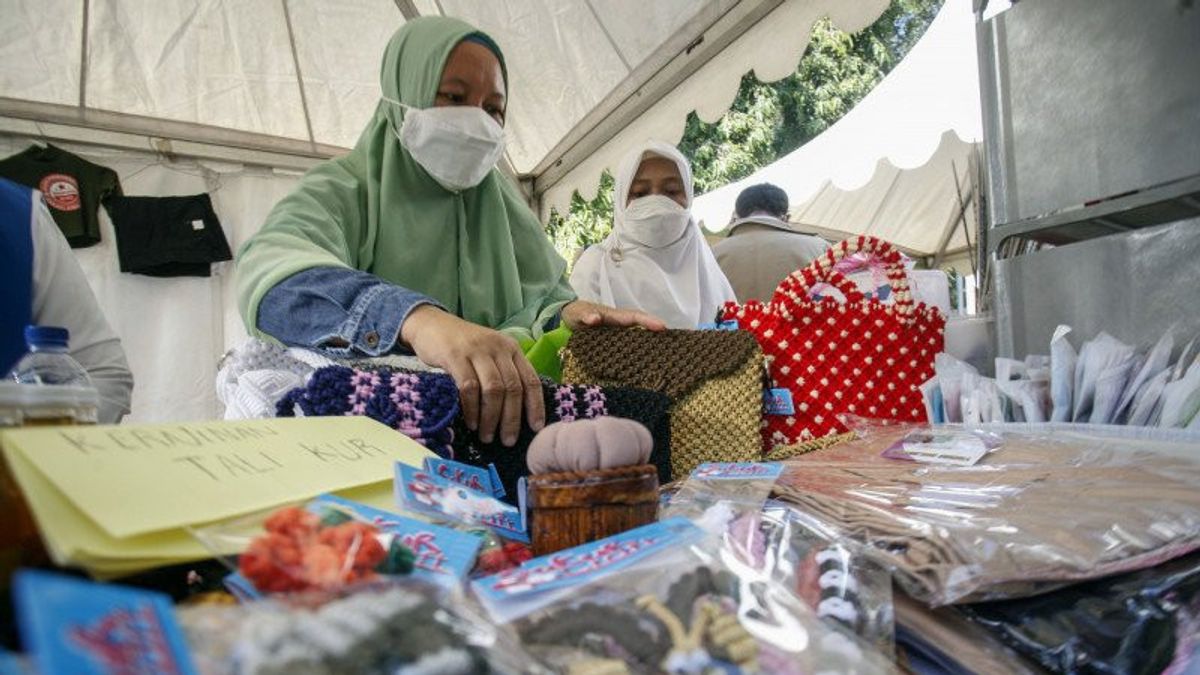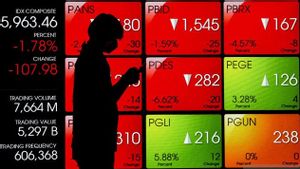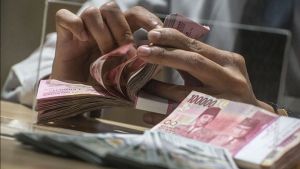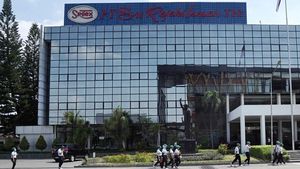JAKARTA - Unusual or "extraordinary" ways, including utilizing technology and adapting the latest innovations and discoveries, especially those related to digital, are considered as the answer to making a quantum leap for micro, small and medium enterprises (MSMEs).
A leap is needed to catch up in development. the economy considering that Indonesian MSMEs are also in an effort to recover after being hit by the pandemic.
Minister of Cooperatives and SMEs Teten Masduki said in an uncertain situation like now, MSME actors are required to be able to adapt.
Extraordinary new ways are needed by utilizing the development of science and technology, creative and innovative ways in developing cooperatives and MSMEs", he said as reported by Antara, Thursday, June 17.
This is also related to the efforts of business actors to optimize the use of the internet in business development.
The internet, which has increasingly strengthened its infrastructure in Indonesia, is considered to be the main and mainstay capital for business actors to be able to rise.
All forms of the latest technology are also expected to be adapted immediately so that an inch of business in the country does not left behind in their steps.
Although almost all parts of Indonesia have been reached by internet services, there are some spots that are “dead zone” areas or areas that are not covered by Wi-Fi networks.
These conditions are annoying for anyone who wants to work with higher speeds and wider coverage and more reliable connections, so the latest technology is needed. which allows for stronger interconnections between devices and nodes.
This is what MSME actors in the country need to know, especially to be able to optimize the use of internet technology in an "extraordinary" way.
TP-Link Indonesia Marketing Manager Yoshia stressed the importance of being able to connect with the internet in business so that it produces the latest technology, namely mesh, which is an innovation in creating a broad and stable network without adding other devices such as a range extender.
“It can be said that this mesh technology provides wider Wi-Fi coverage and eliminates 'dead zones'. 'Seamless roaming' which was created to provide the convenience of "internet" without pause, users can freely move around the house and stay connected", he said.
The latest technology, called Mercusys Halo S3, is important for business actors to know and use because the price is affordable for the MSME market, enabling it to serve many connected devices simultaneously and a "smart home system".
The wireless speed is up to 300 Mbps, with one unified network equipped with mesh technology where the Halo S3 units work together to form one unified whole home network under the name Wi-Fi (SSID) and one password.
"Users can enjoy seamless roaming where connected devices will automatically switch from one Halo unit to another when Wi-Fi users move around the house without pause", he said.
Halo S3 (2 Pack) can spread Wi-Fi signal up to 200 m² for homes with 2–4 bedrooms and can serve up to 40 connected devices g simultaneously.
Meanwhile, Halo S3 (3 Pack) can spread Wi-Fi signal more widely up to 280 m², ideal for homes with 3–5 bedrooms and serving up to 60 connected devices simultaneously.
Learn from Russia
During the Cold War era, the Soviet Union was nicknamed the Iron Curtain country as a symbol for a country that adheres to communism. But that ended when the Soviet Union collapsed in 1991.
In fact, the nickname will apparently continue to be pinned to its traces, when Western countries began to refer to Russia as the Digital Iron Curtain country.
This is because the White Bear country has been testing its own internet network. since December 23, 2019, local time. Russia argues that this trial of the domestic internet network is to reduce dependence, as well as avoid cyber attacks from Western countries, especially the United States (US). With this, Russia has given itself the power to establish a kind of digital Iron Curtain around its network.
This fact seems to be an eye-opener regarding the importance for every country to start protecting its domestic interests including the market at the local level. Likewise for Indonesia, when the great potential from the digital side can bring Indonesia as a new world economic giant.
The e-Conomy SEA report compiled by Google, Temasek, and Bain & Company predicts that Indonesia will remain the largest digital economy market in Southeast Asia, with a market potential of USD 124 billion or approximately IDR 1.762 trillion in 2025.
This 2020 regional report covers five sectors, namely e-commerce, online media, online transportation, travel, and digital financial services, and touches on two new sectors, namely education and health technology (EdTech and HealthTech).
It is estimated that in the next five years there will be 21 percent growth for the Indonesian e-commerce sector and 28 percent for online transportation and food delivery.
It is these positive projections that must then be a factor that should be considered to protect the Indonesian market, which has a population of 264 million people. Indonesia is a country with the 4th largest population in the world.
Local potentials must then be explored and optimized with technology in order to become a host in their own country. MSMEs must also be strengthened and encouraged to be able to be competitive and follow digital transformation so that they can go hand in hand with changes that occur.
In order to survive, mastery of the latest technology is still needed so that their businesses remain protected in addition to encouraging people in the country to continue to consume local products.
The English, Chinese, Japanese, Arabic, and French versions are automatically generated by the AI. So there may still be inaccuracies in translating, please always see Indonesian as our main language. (system supported by DigitalSiber.id)












